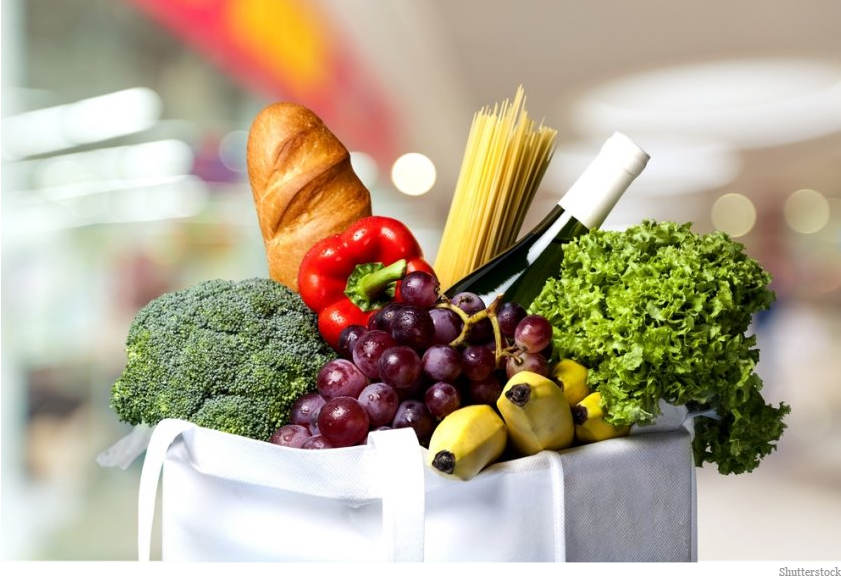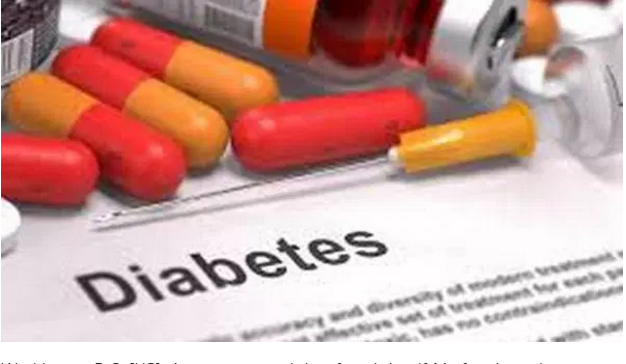You feel it is time to change your dietary habits to promote a healthier lifestyle as well as for weight management. But where do you begin?
Start with and keep in mind these five key principles for healthy eating, and you will always be on the right track.
1. Focus on Vegetables and Fruits
Study after study has shown that the more whole fruits and vegetables you eat, the lower your risk for many chronic diseases, including cancer, obesity, diabetes and cardiovascular disease—including heart disease and stroke.
Fruits and vegetables constitute low-calorie foods. A report by WHO has stated that there is convincing evidence that eating fruits and vegetables decreases the risk for obesity. Compared to high-calorie foods such as processed foods that are high in sugar and fat, fruits and vegetables are less likely to contribute to obesity or overweight.
And, because they contain higher amounts of dietary fiber and other nutrients, they are associated with a lower risk for diabetes and insulin resistance. For the same reasons, they also make people feel full with fewer calories, thus helping to prevent weight gain.
Additionally, research has shown that eating three to five servings of fruits and vegetables per day will decrease your risk of stroke, and eating more than five servings per day will decrease that risk even more. In an incremental fashion, the more fruits and vegetables you eat, the lower your risk. A very good return on your investment.
2. Avoid Processed Meats
The International Agency for Research on Cancer (IARC), a part of the World Health Organization (WHO), has come out definitively with a report on cancer-causing processed meats, stating that such meats definitely can cause colorectal cancer. They have also stated that red meat in general “probably” causes cancers such as colon, pancreatic and prostate cancer.
Given that obesity is a risk factor for a number of different cancers, it is helpful to do all you can to decrease your risk.
Examples of processed meats to avoid: hot dogs, sausage, beef jerky, corned beef, ham, canned meat and canned meat-based preparations and sauces.
3. Cut Back on Added Sugars
It has been reported that the average American consumes 22 teaspoons of sugar a day. Given that the American Heart Association recommends that the intake of added sugar not exceed 6 teaspoons daily for women and 9 teaspoons daily for men.
Major sources of added sugar to avoid include: sugared beverages, including sodas and energy or sports drinks; grain desserts like pies, cookies and cakes; fruit drinks (which are seldom 100% fruit juice); candy; and dairy desserts like ice cream.
4. Drink More Water
The many health benefits of drinking water are often overlooked. But don’t underestimate the importance of what may be the healthiest beverage of all.
Water has no calories. Zero. What it does have plenty of: health benefits. Researchers have found that drinking a glass of water 30 minutes before you have a meal can make you feel fuller and thus more likely to eat less, thereby reducing calorie intake.
Staying hydrated throughout the day will make you more alert, help you think more clearly, and make you feel less fatigued.
All of that can lead to making better dietary choices as well. As an added bonus, drinking enough water throughout the day can help in the prevention of recurrent kidney stones.
5. Eat Less Salt
Obesity causes high blood pressure (also known by its medical term, “hypertension”), so it is helpful to know what you can do to manage your blood pressure—and that includes cutting back on dietary sodium intake.
With the advent of processed foods, average American sodium intake skyrocketed. In fact, it has been estimated that the average sodium intake per person in the United States is 3,478 milligrams per day. This is at least 1,000 milligrams per day more than what many well-respected scientific and professional health organizations, such as the American Heart Association and the National Heart, Lung, and Blood Institute, recommend for maximum daily intake.
Which foods are the saltiest? The answer might surprise you. While you may think that most of your salt intake comes from your home salt shaker, in reality most Americans get the majority of their sodium from packaged, highly processed, and restaurant foods.
Here are some of the worst offenders of salty foods:
Snack foods, such as chips, crackers, and pretzels
Canned foods, like canned beans and soups
Pickled foods
Cheese
Processed meats, like ham, bacon, corned beef, hot dogs, sausages and luncheon/deli meats
Frozen dinners
Processed or packaged fish that has been pre-breaded, pre-fried, smoked or canned in brine
Ketchup, mayonnaise, sauces and salad dressings
Most restaurant and fast-food meals
By cutting back on the foods listed above and cooking at home whenever possible, you will automatically lower your average daily sodium intake.
Read the full post in Verywell.com
=======================================================
Thinking to sell your house or Condo in Central Toronto areas and/or in downtown Toronto areas? Please visit http://www.TorontoHomesMax.com for a FREE Home Evaluation“ or please call, text or email Max Seal, Broker at 647-294-1177. NO obligation.
Thinking to buy a House or Condo in Central Toronto areas and/or in Downtown Toronto areas? please call or text Max Seal, Broker at 647-294-1177 to buy your dream home or Condo. I offer you a 30-min “FREE buyer’s consultation” with NO obligation.
Please visit my website http://www.centraltorontorealestate.com/ to find out available homes and Condos for sale in Central Toronto areas and/or in downtown Toronto areas.
This Toronto housing market may be a better time for “Move-up”, “Move-down” or “Empty-nester” Sellers and Buyers. Want a “Market Update” of your home in 2019? Please click the image below or call or text Max Seal, Broker at 647-294-1177 or send an email.
Want a “Market Update” of your home? Please click the image below. Or call or text Max Seal, Broker at 647-294-1177 or send an email.
(** some conditions apply. We value your privacy, all your information will remain confidential.)










